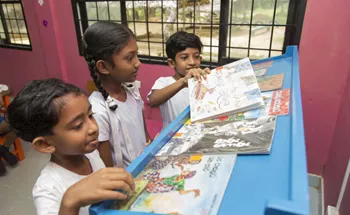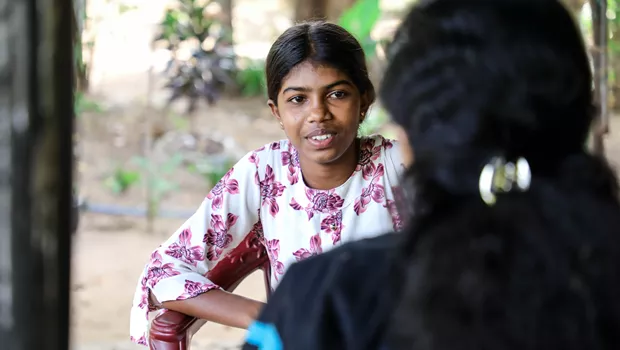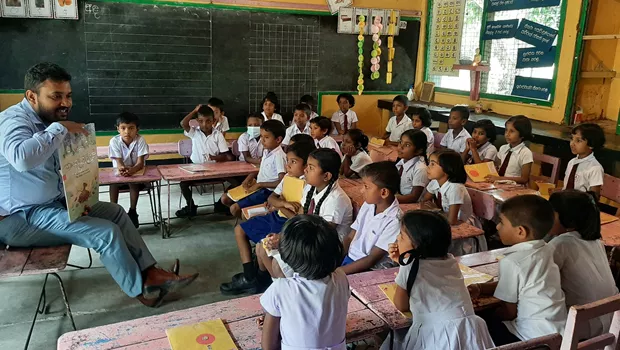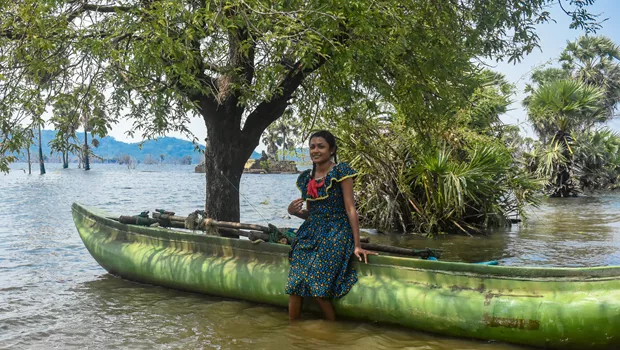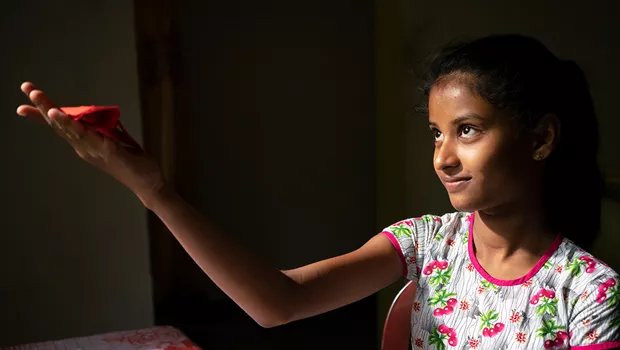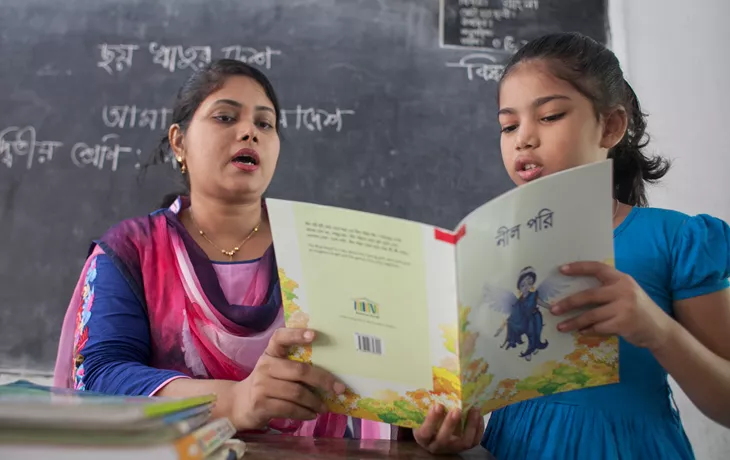Room to Read Sri Lanka works closely with the government to facilitate our Literacy and Girls' Education programs. Our work is highly sustainable, with local communities continuing the programs once we transition to other under-resourced communities.

Sri Lanka
Unequal educational opportunities
Sri Lanka has the highest youth literacy rate in all South Asia at 98.9 percent, based on World Bank data. With free access to primary education, the World Bank reports that the net enrollment rate is 99 percent and the primary completion rate is more than 95 percent. Additionally, Sri Lanka has high gender parity in education, with an equal proportion of girls and boys enrolled in primary school and a slightly higher number of girls than boys enrolled in secondary school.
While educational outcomes are high, access and quality of education remain inconsistent across the country as 28 percent of youth in Sri Lanka are out of school and unemployed. Children living in historically low-income communities stricken by generations of poverty do not have the same educational opportunities because the lengthy conflict destroyed school infrastructure, led to a scarcity of teachers and teaching materials and caused overcrowding in the classroom.
Additionally, much post-conflict reconstruction efforts diverted funds away from education. As of 2018, World Bank data shows that education spending is only 2.1 percent of the country’s GDP.
Follow our Work
Become a Monthly Investor

